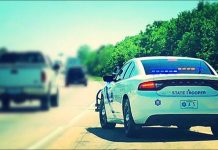Here’s the latest reader question, along with my reply!
Stacie asks: My 2002 Subaru Outback is noisy but I am unsure why it is noisy. The noise is more of a droning sound in the background that gets louder as I drive faster. I am afraid to take it in to the dealer who will probably tell me it needs a new transmission!
My reply: Well, it might be the transmission – though probably not. Figuring out what’s causing the noise/drone is a process of elimination. And the first thing to eliminate is whether the sound is new.
Some cars are much noisier than others – naturally. It’s just the way they were designed. I notice this because I test drive new cars all the time and the variance is sometimes remarkable.
If the sound isn’t new, it is probably just the way it is – and nothing to worry about.
If it is new, the first thing I’d check would be the tires. Different tires – or damaged tires – can change what you’re hearing. Different tires – different tread type/compound and so on – aren’t a danger, just an annoyance, if they make a racket. But a damaged tire can obviously be dangerous and its death keen is cause to check things out.
Look at all four tires for signs of damage or something caught in the tread; make sure all are inflated to spec. If any are out of spec, see whether inflating them to spec changes the noise. If any tire is damaged, have it repaired or replaced – obviously.
If all four look good – and are inflated to spec – you can try a tire swap to see whether that changes the noise. If it does, then obviously your sound issue was caused by the tires – and can be fixed by going with the not-noisy tires (brand and type) you had before.
If it’s not tires, the noise could be caused by several other problems, including wheel bearings, CVT joints and (yep) a worn transmission. There’s no way to know which it is without having the car looked at by a mechanic.
If you don’t trust your dealer, ask around for recommends. A friend or family member will probably know of someone with a good reputation. And keep in mind that you’re not obligated to just agree to have work done. You can – and often should – get a second opinion, which at the very least will confirm the nature of the problem and give you a second price, so you can get a sense of the reasonableness of the price.
Keep us posted about this!
. . .
Got a question about cars, Libertarian politics – or anything else? Click on the “ask Eric” link and send ’em in!
If you like what you’ve found here please consider supporting EPautos.
We depend on you to keep the wheels turning!
Our donate button is here.
If you prefer not to use PayPal, our mailing address is:
EPautos
721 Hummingbird Lane SE
Copper Hill, VA 24079
PS: Get an EPautos magnet (pictured below) in return for a $20 or more one-time donation or a $10 or more monthly recurring donation. (Please be sure to tell us you want a sticker – and also, provide an address, so we know where to mail the thing!)
My latest eBook is also available for your favorite price – free! Click here. If that fails, email me and I will send you a copy directly!











Wheel bearings have a growling sound that’s constant. (or also a wump-wump-wump) Bad CV joints make noise when you turn. Rotate the tires and see if the noise moves. I was surprised how much noise my bad tires made. (They were old and rubber was physically hard.)
You can check for a bad wheel bearing by feeling the hub after driving a while. If one wheel hub is significantly warmer or hotter than the others then it is probably a bad wheel bearing.